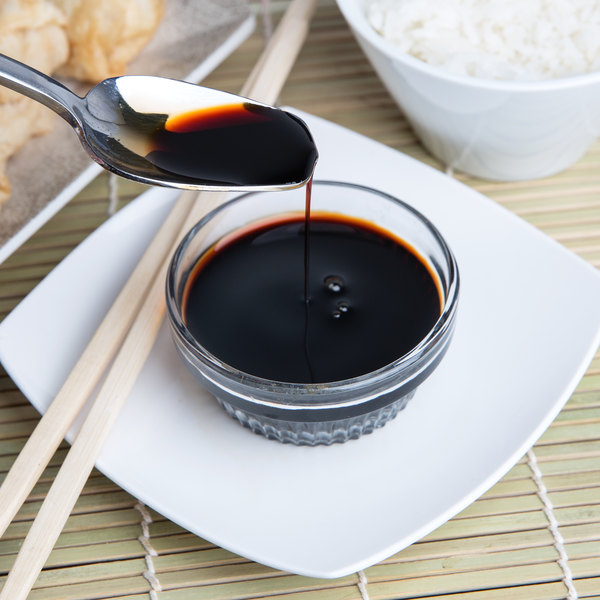While having a cat at home gives you ultimate joy, taking care of its diet can give you a real headache, at times. By now, you would have understood that human foods and cat foods are completely different because the digestive system of both species is designed differently. Since cats are obligate carnivores, their digestive system can handle only meat and seafood. Their diet needs to be rich in proteins.
Cats should be kept away from human foods as much as possible. Some foods may be tasty and beneficial for you. However, they may prove to be toxic for cats. Here, we will talk about the good old soy sauce that gives a new and unique flavor when we make dishes using the Chinese cuisine styles. Soy sauce and vegetable noodles may have been your comfort food for a long time now, but is the tasty sauce good for your cats?
Don’t allow your cats to taste human foods. These include sauces, curries, noodles, and everything else you eat. Your cat may be curious to know what you are eating, and it may also demand a lick or two from the bottle. While this need not alarm you, you should remember that you should never feed soy sauce in large quantities to cats.
In the following sections, you will understand more about why soy sauce is bad for cats and what health risks are associated with feeding this sauce to your feline friends.
Why is soy sauce dangerous for cats?
Veterinarians and pet experts don’t recommend feeding soy sauce to cats because of the following main reasons:
- Soy sauce is very high in sodium, which causes a toxic reaction in cats.
- Soy sauce is made from soy. While soybean brings about many benefits to humans, it doesn’t contain any nutritional value for cats. Additionally, it also poses some health risks to felines.
- Soy sauce mostly contains MSG (monosodium glutamate), a highly toxic ingredient capable of causing severe health issues in cats.
- Flavored soy sauce may contain other additional or artificial flavors that can cause a severe allergic or sensitive reaction in cats.
Let us briefly discuss each of these reasons in the following sections:
High in sodium

One of the main reasons soy sauce is considered toxic for cats is that it is high in sodium. If your cats lick a drop of soy sauce that has dropped to the ground, it should be fine. However, if it has consumed large quantities of soy sauce, you have many reasons to be worried. Overconsumption of sodium-rich foods leads to salt toxicity or sodium poisoning in cats.
In this case, salts feel dehydrated, because they don’t drink water, even if they feel very thirsty. The fluid starts building up in their urinary bladder, thereby leading to urinary tract infections as well. Such cats exhibit symptoms like vomiting, diarrhea, lethargy, imbalanced movements, excessive urge to urinate, failure of internal organs like kidney or liver, and coma. The cats that have a high level of salt toxicity may go into a sudden coma. So, you shouldn’t bring your cats anywhere close to the place where you have kept your soy sauce.
Low nutritional value in soybean
Even if soya sauce is made from the most hygienically grown, organic soybean, it is still not safe to feed cats. Soy, contains phytates, a compound that can cripple the enzyme-producing capacity of cats. When cats stop producing these enzymes, it becomes difficult to digest the proteins in their food.
This is a very scary situation because proteins form at least 95% of a cat’s diet. When a cat cannot digest most of its food, it suffers from pain in the stomach, bloating, vomiting, diarrhea, etc. The cat’s digestive system is handled to digest animal proteins, whereas soy is a plant-based protein that remains undigested in a cat’s tummy.
MSG and cats
Soy sauce contains MSG, also known as monosodium glutamate, a compound that is toxic for cats. MSG is bad for humans as well, but it is more severe in the case of cats. Cats cannot digest this food. As a result, overconsumption of soy sauce with MSG leads to pancreatitis in cats. In this condition, the cat’s pancreas produces digestive juices, but cannot release them into the cat’s digestive system. This can be a painful and irritating problem for cats.
Flavored soy sauce is dangerous

We also love additional flavors and tastes in our dish, don’t we? This rule applies to the sauces we use, too. Seldom do we use plain sauces. We love our sauces with a dash of chili, onion, garlic, herbs, and other seasonings. If you use flavored soy sauce at home, you should keep them away from cats as much s possible. The flavorings, especially onion and garlic, are considered to be lethal for cats. Your feline friends will fall sick even if they consume very little amount of flavored or spiced soy sauce.
Are cats attracted to soy sauce?
Yes, cats are attracted to soy sauce, because they are curious to know how it tastes. They love the twist of flavors it brings to their mundane dishes. They love it when you add a small spoon of soy sauce to their normal foods. However, you should refrain from doing this, ever.
If you want to add more flavors and taste to your cat’s dish, you can mash the foods nicely in water and make your felines eat them. You can also add a small spoon of plain yogurt (that doesn’t contain any flavors at all) to your cat’s food.
Final Word
Soy sauce is very high in sodium content. When cats consume too many sodium-rich foods, they are prone to many health issues in the long run. They may not show symptoms immediately, but that doesn’t mean you can continue to allow them to keep licking at the soy sauce bottle. It would help if you never opted for any flavorings in your cat’s diet. Hence, soy sauce is a strict no for the felines.